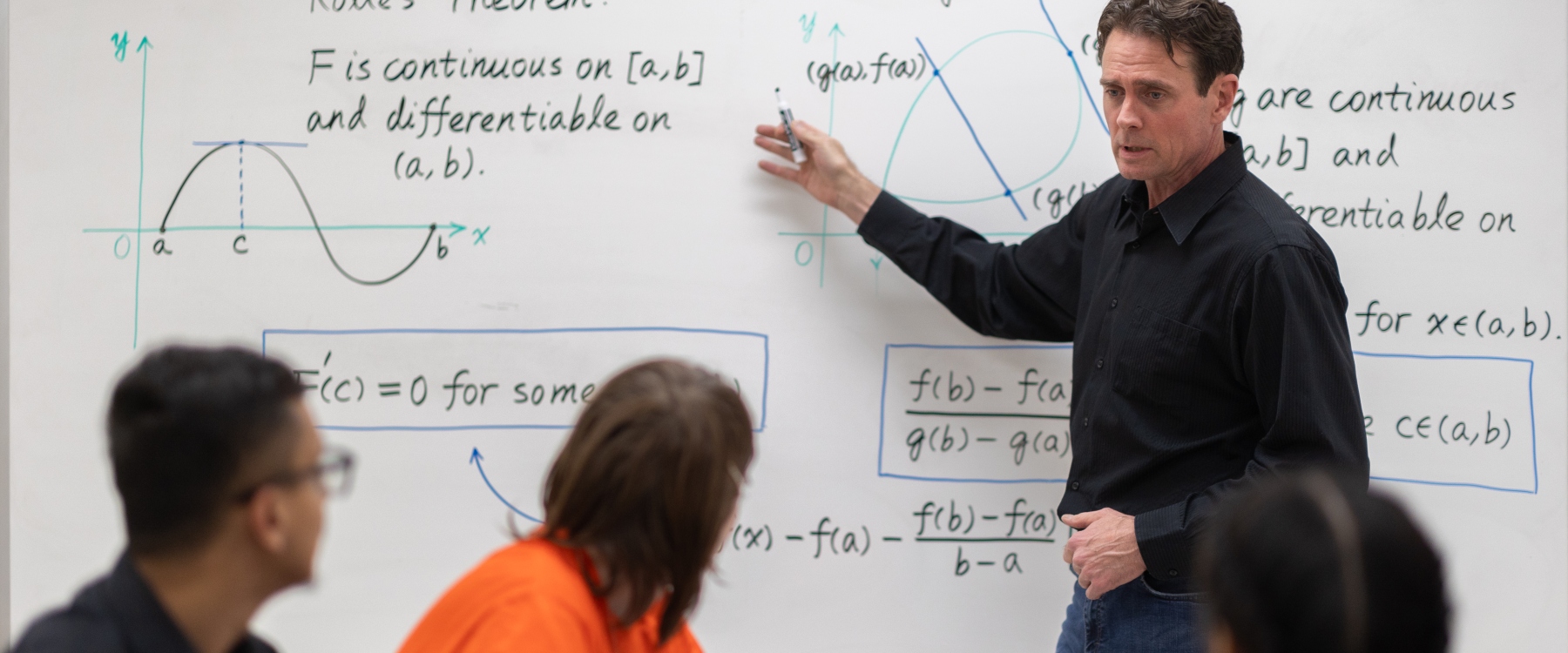In response to a critical shortage of teachers in Idaho, select Idaho State University students have an opportunity to be awarded full tuition as well as cost-of-living expenses throughout their degree completion as part of the Idaho Making Progress Against Critical Teacher Shortages in STEM (IMPACTS in STEM) project. Funding for the awards comes from a five year, $1.2 million grant from the National Science Foundation’s Robert Noyce Teacher Scholarship Program.
There are three Noyce Scholar students at ISU; two at the undergraduate level and one at the graduate level, this is a strong start to the pipeline of highly qualified STEM teachers that the IMPACTS project is creating in Idaho.
IMPACTS in STEM Noyce Scholars first complete an undergraduate STEM degree in the College of Science and Engineering. They then complete the Master of Arts in Teaching program in the College of Education, earning both their master’s degree and teaching certification. In addition to their coursework, students participate in an extensive and rich community of practice that includes book studies, volunteering in local STEM classrooms, working with current STEM teachers and engaging in other meaningful experiences that support their development toward becoming a highly effective K-12 STEM teacher.
START YOUR JOURNEY
For current ISU students who are interested but still undecided if they want to become a STEM teacher, the IMPACTS project has made internships available for them to explore STEM teaching. While working as interns, students can participate and engage in all parts of the IMPACTS project.
To learn more about the IMPACTS project, visit the Noyce Scholarship program page.
IMPACTS in STEM Noyce Scholars first complete an undergraduate STEM degree in the College of Science and Engineering. They then complete the Master of Arts in Teaching program in the College of Education, earning both their master’s degree and teaching certification. In addition to their coursework, students participate in an extensive and rich community of practice that includes book studies, volunteering in local STEM classrooms, working with current STEM teachers and engaging in other meaningful experiences that support their development toward becoming a highly effective K-12 STEM teacher.
“Scholars are engaged in an array of outreach and support activities to learn more about STEM teaching and learning; some of them are volunteering in schools,” said Cory A. Bennett, Ph.D., professor in the Teaching and Educational Studies (TES) Department and a leader of the project. “Some of them are helping out with different kinds of science or engineering fairs, and they’re getting involved with the education community in many different ways before they start taking their formal coursework in education.”
Current Noyce Scholar, Zoe Tassava grew up in a family full of STEM professionals. As a child, she was passionate about science. She loved dinosaurs and planets, and she was never without her beloved science encyclopedia. When high school rolled around, Tassava had a few struggles that made her question her abilities. She still loved science, but had lost her confidence about belonging in a STEM field.
When she started college classes in her late twenties, she decided that being a science teacher would be a good fit for her interests. “I knew that there was a need for STEM teachers, and I had still maintained a passion for science, so my path seemed set,” Tassava said.
Tassava thrived in her classes, working her way up from lower-level mathematics classes to calculus. The confidence that had faltered in high school began to blossom as she discovered she was a capable learner in mathematics.
“They’re welcome to be a part of anything within the project to help them see the benefits, the joy, and all the other cool parts about being a science or mathematics teacher.”
Cory A. Bennett, Ph.D.
Professor in the Teaching and Educational Studies Department, and leader of the project
“As I took more and more math classes, and proved to myself that I was a math person, that I belonged in STEM and math, I realized that maybe what I really wanted was to have a math degree, to be a math expert,” Tassava said.
Being a Noyce Scholar is helping her do that, and in the future she looks forward to helping her students navigate their struggles and showing them they belong in STEM. In addition to her coursework, Tassava has also been able to tutor and teach. She has loved watching her students experience what she calls “lightbulb moments” when they understand the materials.
“It has been so amazing to have an academic journey that recommits me to my passions nearly every single day,” Tassava said. “My journey so far has reassured me that STEM teaching is my destiny, and I can’t wait!”

